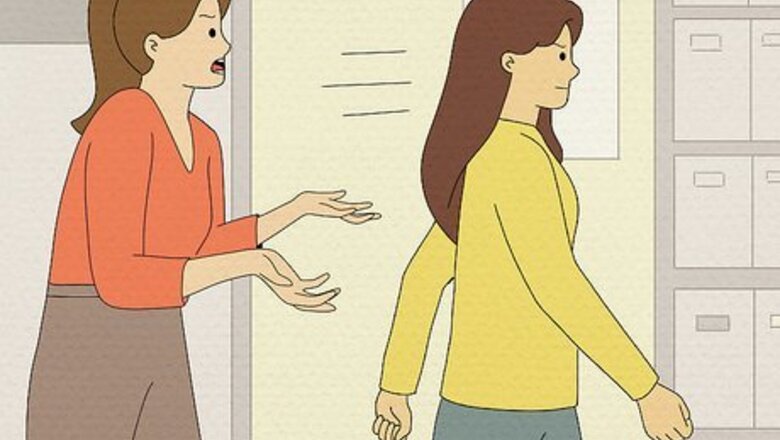
views
- Give each other time to cool off and reflect before kindly reaching out with a text like, “I’d like to meet up and talk things through when you’re ready. Love you.”
- Be open to your friend’s perspective and listen to their feelings and thoughts.
- Apologize for your role in the fight and any harm you caused to your friend, e.g., “I’m sorry I called you stupid. My words were careless and rude, and I didn’t mean them.”
Taking Time to Cool Off
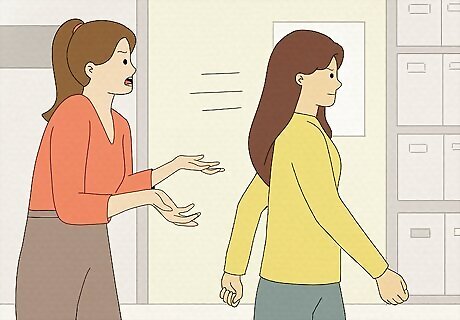
Walk away from the argument before it goes too far. When emotions run high, it’s easy to say something you don’t mean. If you start feeling like you’re not in control of your temper — or your friend isn’t in control of theirs — tell your friend you’ll talk to them later and walk away. Even if your friend says something mean that hurts your feelings, try not to get pulled into the argument again. Tell yourself they're just lashing out, and let it go. If you feel like it’s appropriate after the fight, text your friend to reassure them. Try something like, “I want you to know that you’re still my best friend and I love you, even when we argue.”

Take several deep breaths to calm down. The first thing you should do after an argument is to calm down. It can be hard to calm down when you're angry, but staying angry isn’t good for you and it will keep you from reconciling with your friend. Slowly inhale through your nose, then exhale through your mouth. Repeat this several times, focusing on calming yourself more with each breath. Other things to help you calm down might include a peaceful walk outside, quiet meditation, or eating ice cream right out of the container. Whatever it is, take a little time to clear your head.
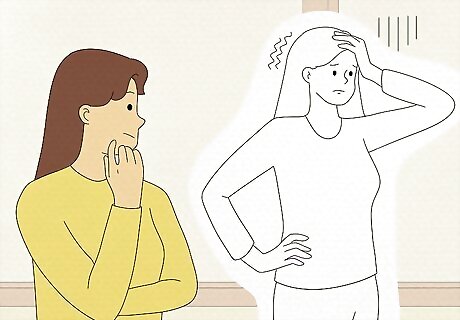
Accept the role you played in the argument. Arguments are rarely one-sided, so don’t blame everything on your friend. Think about what you did that played into your fight. Have you been feeling stressed out or irritable lately? Your emotional state may have played a role in your behavior. Did you brush off your friend when they were trying to communicate with you? You may have hurt their feelings, leading to the argument.
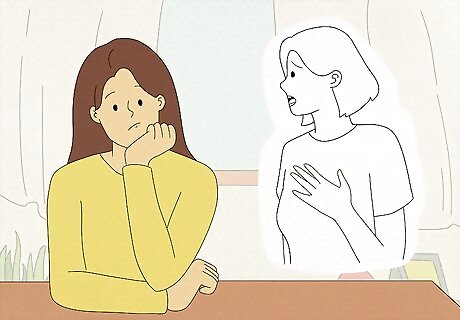
Try to see the argument from your friend's perspective. It can be difficult to step back and see things from someone else's point of view, but being able to empathize will show your friend that you really care about them, and not just about your own feelings. Even if your friend hurt you, they probably didn’t do it intentionally. Remember that we’re all human and make mistakes from time to time.
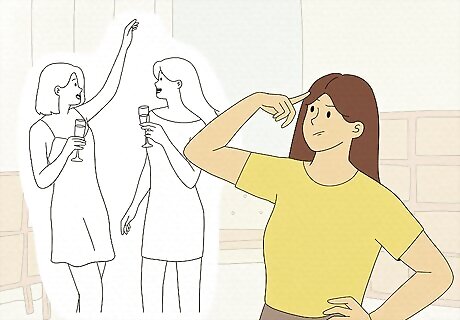
Remember all the positives about your friendship. Best friends are hard to let go of and harder to replace. Reflect on the great memories you have with your friend and why you wanted to have them in your life in the first place. Think about times that they’ve supported you and made your life better. You could even write a list of these positive memories and share it with your friend when it’s time to make up. Every relationship is bound to have a few rough patches, but the happy times should still outweigh the difficult ones.
Planning Your Apology
Keep the details of the fight between you and your friend. Avoid gossiping about your friend or what caused the argument to others. Don't post about the fight on social media. Involving others will add more drama to the situation, and it could make things much worse than the original fight. Even if you share your feelings with a close friend, word could get back to the friend you’re fighting with.
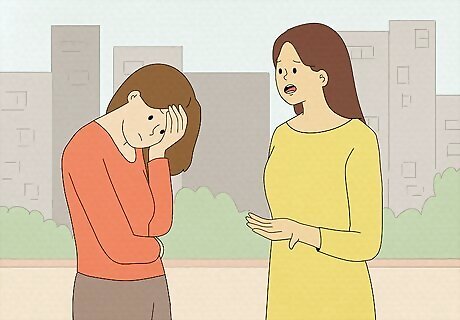
Make up within a few days of the argument if you can. Leaving an argument hanging in the air could cause resentment to grow. You want to give your friend enough time to cool off, but try to resolve the fight as soon as possible. The amount of time this will take is different for everyone. Some friends will make up 5 minutes after an argument, while others may need months to recover from hurtful words.

Wait until you're ready before you apologize. If you rush your apology just because you're tired of fighting, your friend will probably be able to tell that you aren't being sincere. You'll know you're ready to apologize when you don't feel angry anymore. Or, you'll realize you care more about getting your friend back than you do about what they said or did that might have hurt your feelings.

Give a genuine apology. Apologize because you feel regret for hurting your friend, not because you want an apology from them. Your friend may not be ready to apologize. Go into the conversation and issue your apology without expecting anything from your friend in return. Even if your friend isn't ready to apologize in return, you should apologize when you're ready. Just ask them to listen and explain what you're sorry for.
Plan a time to talk to your friend. A face-to-face meeting will help you and your friend reconnect, and it will be easier for your friend to see that your apology is sincere. Call or text your friend to let them know you want to meet and talk in person. Text your friend something like, “I don’t think we should resolve this over text. Can we meet up and talk? Love you.” or “I feel really bad about the things I said, and I'd like to apologize in person.” Ask your friend if the time and place you have in mind will work for them. If it doesn't, see if you can find something that fits both of your schedules. Choose a neutral place like a coffee shop or park where both of you will feel calm and comfortable. If your friend isn't ready to talk, give them more time. You could also send a handwritten apology note with an invitation to get together when they're ready.
Making Amends
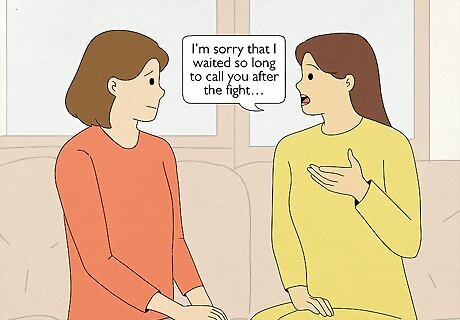
Offer a sincere and specific apology. Don’t just offer a blanket: “I’m sorry.” Think carefully about what you are really apologizing for, and be specific when you say you’re sorry. If the argument came from something you specifically did, like betraying your friend’s trust somehow, commit to solving the problem. Say something like, “I’m sorry I told Emma about the secret you told me. I know it was wrong, and there’s no excuse. It won’t happen again, and I’ll work hard to regain your trust.” If you know you hurt your friend’s feelings, apologize for what you said. Say something like, “I’m really sorry I called you stupid. I respect you more than that, and my words were careless and rude.” You might say, “I’m sorry that I waited so long to call you after the fight,” if you honestly don’t think the argument was your fault.
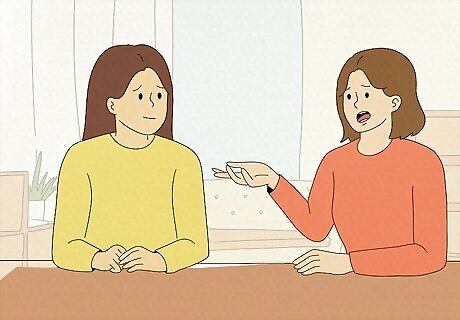
Give your friend a chance to tell their side of the story. After you apologize, let your friend talk. Listen carefully to what your friend has to say, and try not to be defensive when they tell you what they think about the fight. You might have done something to hurt or upset them that you don’t even realize.
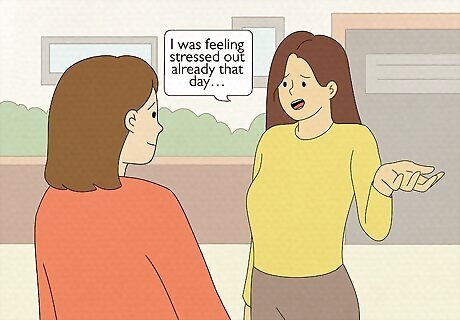
Share your thoughts about the argument. You can talk about what happened, but don’t use this as an excuse to rehash the fight. Focus on using “I” statements that focus on your perspective rather than accusatory “you” statements that are centered on blame. You could say something like, “I was feeling stressed out already that day, and I lost my temper, and I shouldn't have done that,” or “I became really frustrated when I felt that you weren't listening to me, but I shouldn’t have snapped at you.” Don't make excuses for your behavior. It's okay to explain how you were feeling, but be sure to take responsibility for your words and actions.
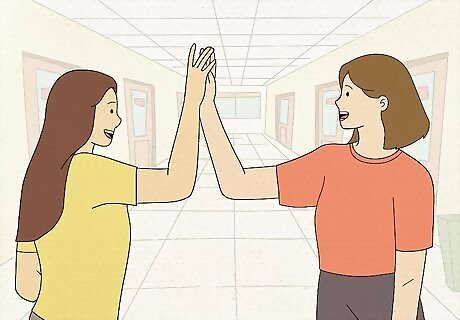
Accept your friend’s apology if they say they’re sorry. Often, once you’ve apologized, your friend will return the apology. If they do, let them know you accept their apology and you’re ready to get things back to normal. If your friend doesn’t apologize, ask yourself whether it’s more important to hear them say they’re sorry or to have your friend back.

Ease the tension with some humor. This situation is uncomfortable for everyone, and most people don’t enjoy being in an argument. Some light-hearted humor can help break the tension of the conversation and remind you and your friend of why you’re working so hard to fix this relationship. Remember that this person is still your best friend. Even if they’re upset right now, they’re still the same person who you’ve shared countless laughs and good times with. Assess how your friend is feeling before using humor. Any joking around in an argument should be gentle, well-timed, and done without making it seem like you’re not taking their concerns seriously. Avoid sarcasm or any humor targeted at your friend.
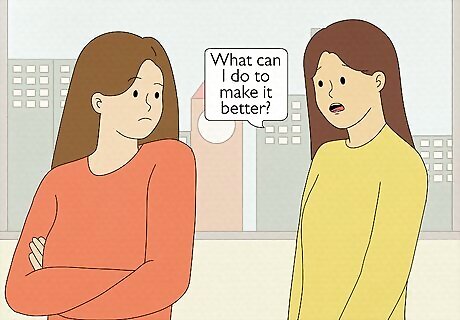
Give your friend more time if they're still angry. Your friend may not be ready to forgive you or resolve the argument. Respect your friend’s emotions, but don’t let them pull you back into the fight. If your friend is still mad, ask what you can do to make it better. If they give you an answer, try to do that. If they say nothing, your friend may need more time, or they may want to end the friendship. Try to be patient with your friend as they take the time to heal after your argument. They may need more time than you do, and that's okay.

Agree to disagree. If you and your friend are still struggling to see eye-to-eye on what happened, it can still be okay to move forward. You can both agree that, even if your opinions on a matter still differ, it’s possible to move forward and let it go. However, the disagreement may occur because your friend disrespected you or because they hold an opinion immensely at odds with your values. In these cases, agreeing to disagree may not be possible, and you may want to consider distancing yourself from the friendship.
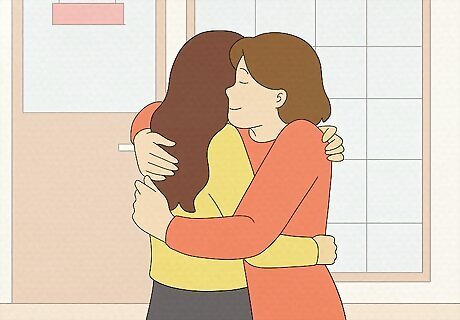
End on a positive note. Whether you and your friend have repaired the friendship or your friend is still upset, try to end the conversation positively. If you’ve made up, leave with a big hug and plans to hang out soon. Make activity-based plans to help you break the ice and form new positive memories, like seeing a movie or going roller-skating. If your friend is still upset, close the conversation by saying something like, “I still love you, and I’ll be here if you want to talk.”
Choosing to End the Friendship
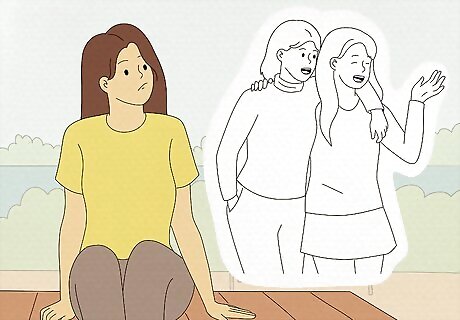
Distance yourself and take time to reflect. Before ending a friendship, try spending some time apart. Reflect on what you’re getting out of the friendship and if you feel good when you’re around this friend. If you share mutual friends or a friend group, try hanging out only in group settings. You’ll still be able to be in each other’s lives, but with less one-on-one time. Stay friends, but accept that you may not be as close as before. You can still support each other in big milestones like birthdays and graduations without being attached at the hip and sharing all your deepest feelings
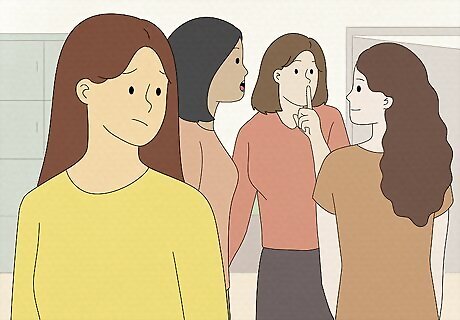
Recognize the signs of a toxic friendship. Toxic friendships may make you feel negatively about yourself. If you’re feeling this way around your friend, you may need to evaluate whether it's a healthy friendship. Look for key signs of toxic friendships, like: Giving more than you get out of the relationship. Losing trust in your friend. Feeling anxious when your friend texts or calls you. No longer enjoying the time you spend together. Feeling bad about yourself when you’re together. Finding out that they’re talking badly about you to other people.
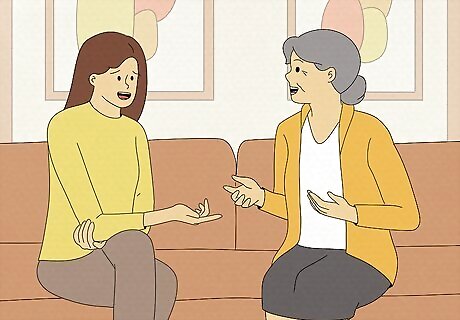
Accept if your friendship has run its course. Friendships don’t always end because they’re toxic. Maybe you’ve just grown apart naturally or no longer connect like you used to. Coping with a friendship breakup is difficult, and it’s okay to be sad. Take care of yourself and spend time with other friends who bring positive energy into your life. Keep yourself busy with new hobbies, clubs, or volunteer causes where you can meet new people. Talk through your feelings with someone else, like a friend, family member, or therapist. If possible, try to part on good terms with your former friend. Ending a friendship is extremely difficult, but sometimes it’s the best thing for you and your mental health.


















Comments
0 comment